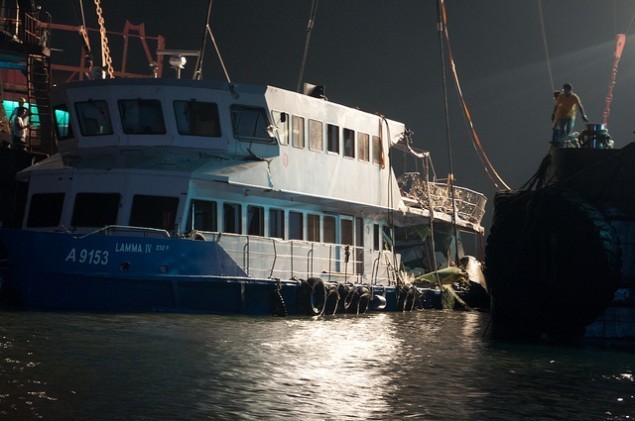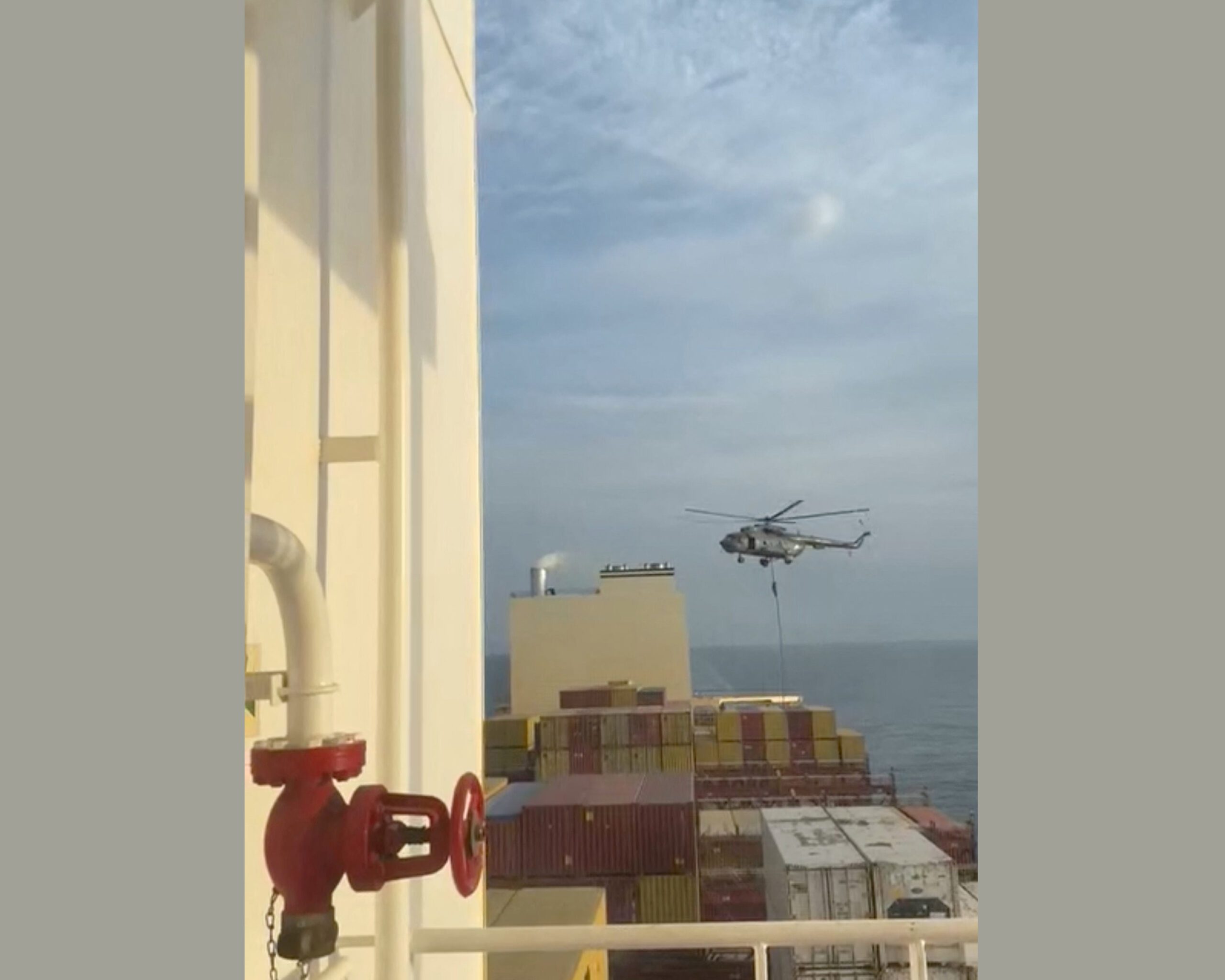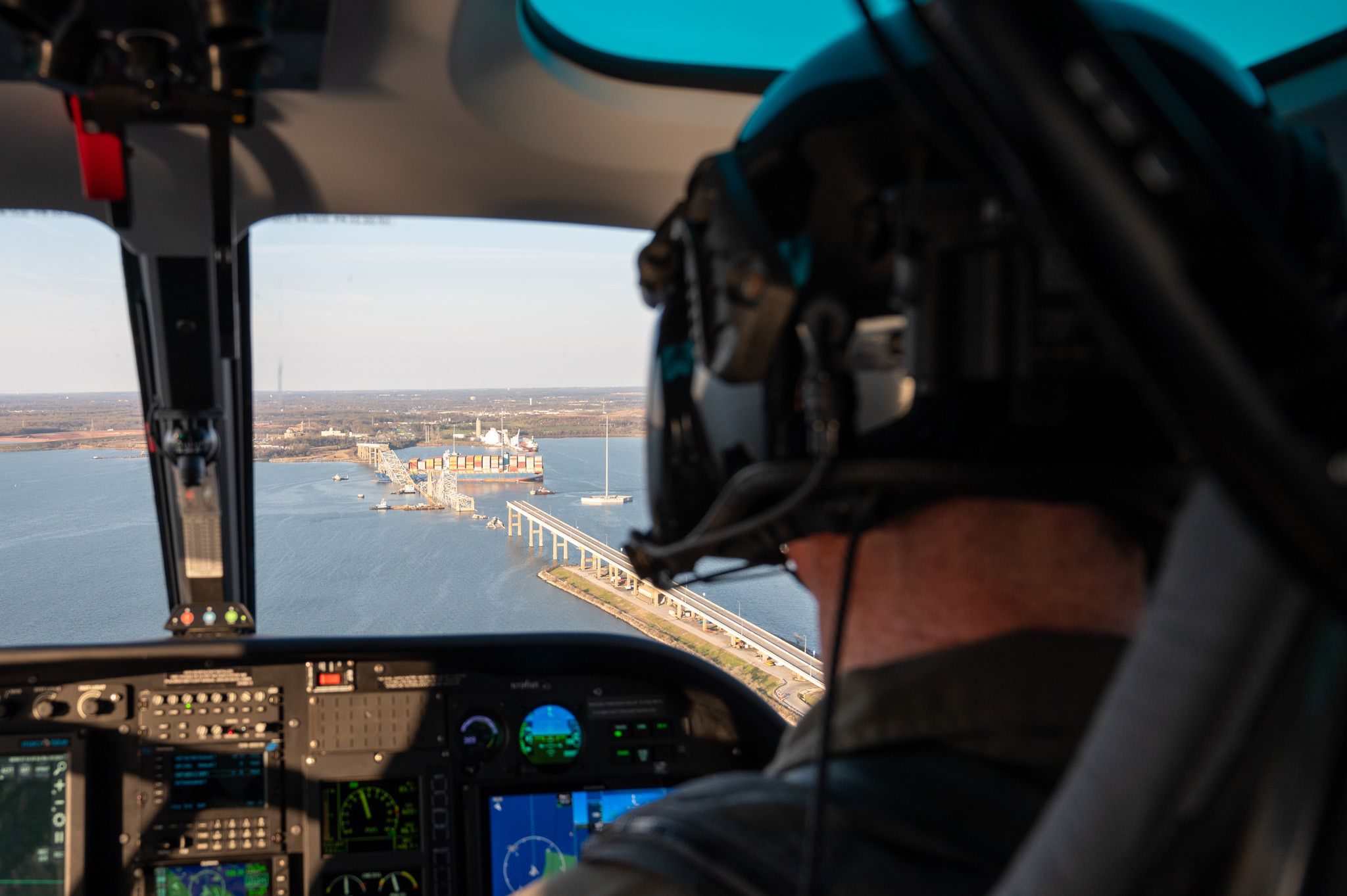HONG KONG—Concerns over long work hours for ferry crews after last week’s deadly crash highlight the difficulty in this Chinese city of attracting new talent to the industry, an unusual paradox given Hong Kong’s historic role as a global shipping center.
Last Monday night, a high-speed commuter ferry collided with a boat filled with workers and their families on a company pleasure trip to view fireworks celebrating China’s National Day, in the city’s worst seaborne accident in over four decades.
The death toll in the crash rose to 39 late Friday after a young girl hospitalized in critical condition succumbed to her injuries. All the fatalities were recorded on the pleasure boat, which quickly sank. Authorities over the weekend appealed for eyewitnesses to help them piece together events, in an investigation they say may take several months to complete.
As investigators continue to probe the causes of the disaster, some passengers and lawmakers question whether the ferry captain was overworked over the holiday weekend as the crash occurred, when crowds flocked to Lamma Island, the ferry’s destination and a popular retreat for tourists and home to a growing expatriate community.
Industry executives say ferry crews in Hong Kong typically work full-day shifts, and are often required to spend the night on their boats before having the next day off.
Though the ferry operator, Hong Kong & Kowloon Ferry Holdings Ltd., has rejected suggestions that the 54-year-old captain was too tired after working a shift of around 10 hours, the difficult conditions and unattractive salaries have made it more challenging for operators to hire and retain staff.
The ferry company has declined to comment further on the crash. The seven crew members on both vessels were arrested on suspicion of endangering the safety of others at sea, but haven’t been charged.
The ages of those crew members, ranging between 50 and 63 years old, are indicative of an aging workforce in a declining industry serving commuters across the former British colony. Still, there was no evidence to suggest that working hours or age played any part in the cause of Monday’s crash.
“Many local ferry companies have sought help because of difficulties in recruitment,” says Ching Ngon-lai, chairwoman of the Small Craft Workers Union, which represents local ferry services staff. She said the average age is 54.8 for the city’s 4,000 workers of small crafts, including ferries, tugboats and motorboats, up from the mid-40s more than a decade ago. At its height in the 1980s, the industry employed over 6,000 people.
“There’s just not enough young people willing to enter the industry…We have no choice but to promote job vacancies among foreign workers but even they are reluctant to join,” said Ms. Ching.
For decades, ferry travel was a key part of Hong Kong’s social fabric, as boats crisscrossed Victoria Harbor to connect the city’s two urban centers of Kowloon and Hong Kong Island.
But demand has dwindled since the late 1980s with the development of several cross-harbor tunnels, and a comprehensive subway system sent the local ferry industry into its sunset days.
Today, cross-harbor ferry traffic accounts for less than 1% of total passenger numbers. The bulk of travelers are tourists, seeking an inexpensive way to enjoy views of the city’s skyline.
Still, ferry operators continue to ply routes to the city’s many outlying islands, such as Lamma. But the companies have struggled to make a profit on the services because of high fuel prices and declining patronage, while fares are capped by the government, thus limiting salary increases.
“The hard work for the ferry crews isn’t really properly rewarded,” said Ms. Ching. “It usually takes 10 years for a ferry sailor to be promoted to captain, but how much he is paid? He would be very lucky if he earned 20,000 Hong Kong dollars a month.” That translates to around US$2,580, a disproportionate sum to the captain’s responsibility for the hundreds of lives on board his ferry, Ms. Ching notes.
That pressure on hiring is also being more broadly felt across the city’s entire shipping industry, even as Hong Kong retains its title as the world’s third busiest container port by handling volumes, behind Singapore and Shanghai. The city has benefited from thriving international trade and transshipments between China and the West to bolster its status as a major marine hub, though growing competition in neighboring Shenzhen and Guangzhou has diminished the dominance of the Hong Kong port.
For many Hong Kong youths, a career at sea means boredom and separation from friends and family, making the professional highly undesirable, notes So Ping-chi, convener of the Hong Kong Maritime Forum, a group representing shipowners, shipbrokers, unions and insurers.
“The salaries for sea seafarers may not be lower than other land-based jobs but the work hours are longer and job nature is uninteresting,” Mr. So said.
The rapid development of Hong Kong’s finance and services sectors has absorbed the bulk of new graduates, with unemployment in the city remaining at a healthy 3.2%. Furthermore, those seeking to enter the marine profession are more attracted to the higher-paying jobs of piloting jetfoils between Hong Kong and Macau, driven by strong passenger demand to the gambling mecca. A typical jetfoil captain earns over HK$40,000 a month.
While the city’s government has pledged to reinvigorate Hong Kong’s shipping hub, it lacks a long-term blueprint to support the marine industry, notes Eric Chu, a marine adviser and council member of the Hong Kong Institute of Marine Technology, who also ran a local ferry operator.
“Even though I’ve worked in the industry for a long time, I won’t encourage my children to be part of it as I don’t see a future for them here,” said Mr. Chu.
By Joanne Chiu.(c) 2012 Dow Jones & Company, Inc.
Unlock Exclusive Insights Today!
Join the gCaptain Club for curated content, insider opinions, and vibrant community discussions.

 Join The Club
Join The Club













